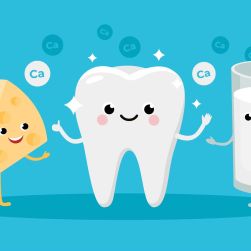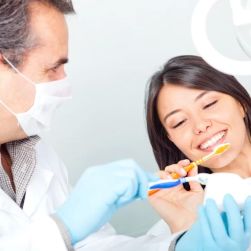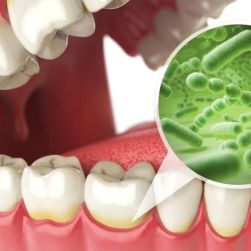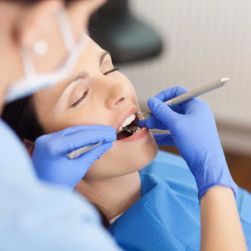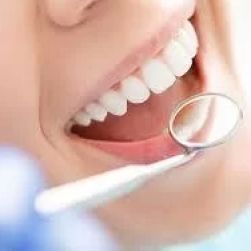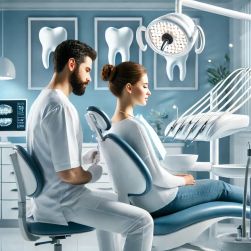Introduction: The Overlooked Connection Between Oral Health and Cancer
When discussing cancer prevention, oral health may not be the first thing that comes to mind. Yet, emerging research increasingly suggests a strong link between oral hygiene and the risk for various types of cancer, including esophageal, oral, and pancreatic cancers. Understanding this connection is vital as it affords a compelling reason to prioritize oral health in everyday life.
Oral health is not only about having a beautiful smile; it is integral to your overall health and well-being. The National Institute of Dental and Craniofacial Research highlights that more than 50% of American adults currently live with periodontal disease, a condition closely connected with other systemic health issues. Dentistry Toothtruth is dedicated to raising awareness about these critical connections.
This article will delve into how oral health can specifically impact your risk for certain cancers, exploring scientific studies and expert opinions to depict a clear picture of why maintaining good oral hygiene is essential to reducing cancer risks.
The Science Behind Oral Health and Systemic Diseases
When we talk about oral health affecting your cancer risk, we're diving into the realm of systemic health, where the body operates as an interconnected system. Studies suggest that chronic inflammation and infections in the mouth may exacerbate cancer development in other parts of the body. For instance, researchers have identified links between periodontal disease and an increased risk of cancer due to the inflammatory proteins these oral conditions release into the bloodstream, potentially promoting tumor growth.
The Journal of the American Dental Association reveals that poor oral hygiene can lead to an overgrowth of harmful bacteria, which can migrate through the bloodstream, increasing cancer risks. These bacteria can produce carcinogens as metabolic byproducts, contributing further to malignancies.
The Impact of Gum Disease on Cancer Risk
Gum disease, or periodontitis, is more than just a dental problem; it is a risk factor for several types of cancer. A comprehensive study published in Cancer Epidemiology found that individuals with poor gum health have a higher likelihood of developing pancreatic cancer compared to those maintaining good oral hygiene. The chronic inflammation from periodontitis may fuel the systemic conditions conducive to cancer development.
Research presented by the American Association for Cancer Research indicates that men with a history of advanced gum disease are 14% more likely to develop cancer than those with healthy gums. This illustrates that maintaining gum health could play a significant role in reducing overall cancer risks.
Oral Bacteria and Their Role in Carcinogenesis
Recent research has uncovered that certain oral bacterial species can contribute to carcinogenesis, the process by which healthy cells transform into cancer cells. Fusobacterium nucleatum, often found in periodontal pockets, has been linked to colorectal cancer. These bacteria can adhere to intestinal cells, influence immune responses, and facilitate cancer growth.
A study in the World Journal of Gastroenterology highlighted that individuals with high levels of Fusobacterium nucleatum are at an increased risk for aggressive forms of colorectal cancer. This correlation underscores the importance of controlling oral bacterial populations through regular dental care and hygiene practices.
Links Between Oral Health and Digestive System Cancers
Maintaining oral health has implications beyond local infections, impacting digestive cancers such as esophageal and gastric cancers. Studies show that the presence of harmful bacteria in the mouth, like Porphyromonas gingivalis, which is also associated with periodontitis, can be detected in esophageal cancer tissues.
The International Journal of Cancer found that poor oral hygiene might allow carcinogenic compounds from the oral microbiome to interact with the stomach lining, contributing to the onset of gastric cancer. Good dental practices can minimize these risks by reducing the microbial load and improving systemic inflammation profiles.
The Role of Viral Infections in Oral Health and Cancer
Viruses present in the oral environment, especially the human papillomavirus (HPV), have been strongly linked to oral and oropharyngeal cancers. The Centers for Disease Control and Prevention (CDC) notes that HPV is found in approximately 70% of oropharyngeal cancers, emphasizing the importance of oral health care in controlling viral loads.
The utilization of preventative measures such as effective oral hygiene routines and vaccinations can help diminish the risk of HPV-related cancers. Regular dental visits allow for early detection and management of viral infections, significantly lowering potential cancer risks.
Actionable Steps for Reducing Cancer Risks Through Oral Health
Understanding the connection between oral health and cancer provides an actionable pathway for prevention. Here are some steps to consider:
- Commit to consistent oral hygiene practices, including brushing twice a day with fluoride toothpaste and flossing daily.
- Schedule regular dental check-ups at least twice a year to ensure thorough professional cleanings and early detection of oral health issues.
- Adopt a balanced diet rich in fruits, vegetables, and fiber to promote better oral and systemic health.
- Avoid tobacco products as they contribute to both oral and broader cancer risks.
- Limit alcohol consumption, as excessive use is another risk factor for oral cancers.
The role of oral health is clearly significant in mitigating cancer risk. By adopting these measures, individuals can enhance their oral health and, by extension, reduce their overall risk of developing certain cancers.
Conclusion: The Greater Role of Oral Health in Cancer Prevention
The implications of oral health on cancer highlight a critical yet sometimes overlooked aspect of personal health care. As evidence mounts on the links between dental health and cancer risk, the Dentistry Toothtruth website aims to be a resource for individuals seeking to understand and act on these connections.
While research continues to evolve, the current understanding points conclusively toward maintaining excellent oral hygiene as an integral part of cancer prevention strategies. By fostering a proactive approach to dental care, alongside other healthy lifestyle choices, individuals can significantly lower their cancer risk and enhance their overall health.
Taking action today, through routine dental care and healthy living, remains a practical and effective strategy for those seeking not just to improve their oral health, but also to fortify their body's defenses against cancer. Let us prioritize this valuable opportunity for a healthier tomorrow.

